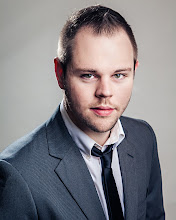Sunday, April 29, 2012
An Entry Guide to DSLRs, and Why Your Camera Doesn't Matter.
Posted by David Childers Photography at 10:33 PM
"What camera should I buy?" I get this question a lot, so I figure it would be a great topic for a blog post. If you are interested in digital photography the bare minimum you need is a DSLR, a digital single lens reflex camera. That's the technical way of saying a camera with a changeable lens. Why do you need a DSLR? Digital cameras, much like film, create high quality images based on the size of the sensor (or size of the film). DSLRs have senors that are much larger than point and shoots and compact cameras, and the lenses tend to be much higher quality and provide better optics for the senors to record with.
With that said, any DSLR made within the past 5-7 years is more than capable of creating amazing images, and that is the point of this post. You don't need to spend $1,000 or more to get a great setup, in fact you can spend as little as $300 and have the same setup I used to take this photo.
Why Simple Is Better
A lot of people look for the biggest/best camera they can afford when they decide to invest in a DSLR. While that can be fine if you can afford it, a lot of people want the best bang for their buck. The difference in an entry level camera and a "prosumer" is often not worth the ~$1,000 difference in price for someone that is only learning or starting out. A lot of the features and differences are only quality of life upgrades, things that aren't going to really make your photos better.
There are two ways that you could spend your money that will have a better impact on your photos than the camera body itself; lenses and a good flash. I would recommend getting a used camera body that is 2 or 3 generations old, like a Canon XTi or Nikon d50. You can find these for well under $300, probably around $200 in good condition.
Now, a camera body is useless without a lens to put on the end of it. The absolute best lens for a beginner that will grow with you is a 50mm prime. A prime lens doesn't have a zoom, so you have to actually think about your positioning and composition. This is a good thing though, as it forces you to think about your photos and the more thought you put into a photo the better the result will be. Prime lenses are also "fast", meaning they perform better in low light environments (anything indoors, near sunset, etc). This means you will be able to get the shots that you otherwise couldn't. A 50mm prime is also among the cheapest lens you can buy, with the Canon 50mm 1.8II coming in at $89 new. Even beside my $1,500 L series lenses, this lens still sees common use and creates beautiful images.
The last thing you can buy, and this is optional, is a hotshoe flash. Entry bodies have a built in pop-up flash, but those will hurt your images more than help. You want a flash that has an adjustable angle, or even better, a swivel head. This lets you bounce the light, instead of blinding your subjects with head-on harsh light that makes everyone look like a deer on the interstate. A great starter flash is the Yongnuo YN-460II, $46 new.
So You Have a Camera, Now What?
So let's look at our kit:
Canon XTi - $200
Canon 50mm - $89
Yongnuo Flash - $46
Grand total: $335. Compare that to a current generation Canon kit, the t3i, which is $800 just for the body and an arguably inferior lens. Is the t3i a great camera? Absolutely. Do you need a bleeding edge camera to shoot great photos? Absolutely not. Every photo in this post was taken with the exact kit listed above.
So how do I create great images with my new camera? Go out and shoot. Shoot every day. Keep your camera in your trunk and stop on the side of the road when you see a beautiful scene. Take it to parties or other events. Get friends and family to model for you. Experience is the best teacher, so the more you shoot the quicker you will progress. Once you shoot enough, you will begin to realize what things are giving you problems and what you need to look into to fix them, and you'll know more about what you want to shoot as well.
Also keep an eye on this blog, every week I will have a tutorial or technique post. It might be a behind the scenes look at a photoshoot, a photoshop tutorial, or a lightroom preset you can download and use on your own photos. If you have any specific questions related to gear feel free to email me at davidchildersphoto@gmail.com
0 Comments:
Subscribe to:
Post Comments (Atom)




